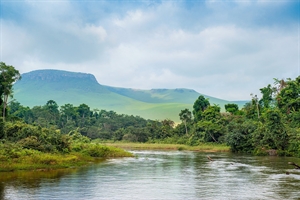Monkeypox, a contagious disease with a rash similar to chickenpox, is usually only found in Central and West Africa. But recent outbreaks in the US and around the world, including Canada, Switzerland, Germany, and Australia, have seen this rare disease hitting news headlines.
What is monkeypox?
Monkeypox is a rare disease and most people who catch it have only mild symptoms. However, it is contagious and some people can get very sick from it.
The symptoms of monkeypox include:
- exhaustion
- fever and chills
- headache
- muscle and back aches
- swollen glands
These symptoms start between five and 21 days after exposure. A few days after the first monkeypox symptoms appear, there is a rash of raised spots. The raised spots become fluid blisters, which later dry up to form scabs. Eventually the scabs fall off usually leaving intact skin. Once the scabs have fallen off, the person is no longer contagious with monkey pox.
How do people catch monkeypox?
The monkey pox virus enters the body through broken skin, through being breathed in or through mucous membranes. You have to be in very close contact to a person infected with monkeypox. You can catch monkeypox from sharing bedding, clothing and towels etc. with an infected person. It may be possible to catch monkeypox from exposure to scabs from monkeypox spots.
A few people have caught monkeypox directly from animals, most usually rodents.
What should I do if I think I have monkeypox?
In case of exposure to monkeypox, or if you get any monkeypox symptoms or the characteristic rash, limit your contact with others and ask your family doctor for advice, or get medical advice while you are traveling. Let the doctor know about your recent travel history, or if you have had contact with someone recently returned from Africa so that you can be referred for appropriate tests, investigations and treatment.
Protecting yourself from monkeypox while traveling
Most travelers are not likely to be exposed to monkeypox. As long as you avoid close contact with a person infected with monkeypox, it is unlikely that you will catch it.
As there is a small risk of catching monkeypox from animals, do not eat bushmeat hunted in an area with a monkeypox outbreak; and do not touch animals, particularly if they seem unwell.
There is a monkeypox vaccine, but it is not generally recommended for travelers. It may be offered as a treatment option after exposure to monkeypox, though.
Does the Centers for Disease Control have any information about monkeypox?
The Centers for Disease Control has issued an alert about monkeypox.
Should I cancel my trip abroad because of monkeypox?
It is very unlikely that you will be troubled by monkeypox on your trip abroad. The best thing you can do to protect your health while traveling is to make an appointment with a travel health professional, like our advisers at Global Travel Clinics. They can help you to get the right travel vaccinations for your trip, and give advice that will minimize your risk of exposure to illnesses such as malaria and Japanese encephalitis.
We recommend coming in for your travel health consult six to eight weeks before you travel, but we can help if you need to travel sooner than that. As well as recommending vaccines and antimalarials our advisers will tell you how to avoid insect bites and stings and will let you know how to meet any entry requirements your destination country might have, including yellow fever certificates and covid testing.


Book Online